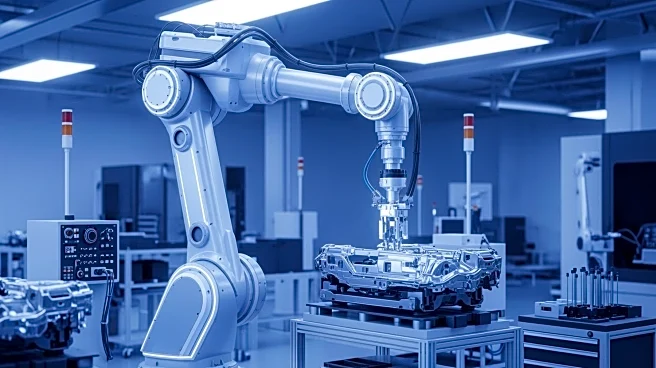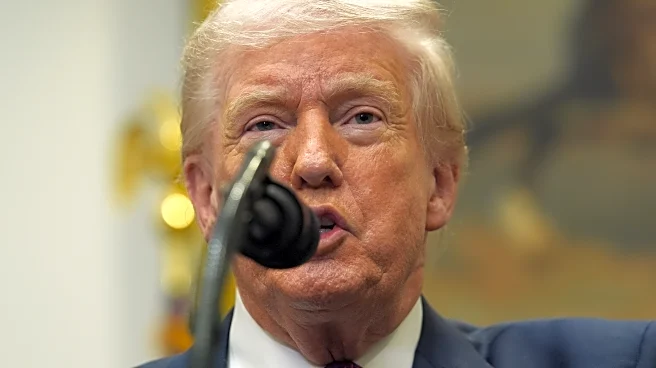What's Happening?
Chinese automotive manufacturer BAIC Group is moving forward with its plans to invest in vehicle production in Punjab, Pakistan. This development follows a memorandum of understanding (MoU) signed earlier
this year with the Punjab Board of Investment & Trade (PBIT). A strategic meeting was recently held at the PBIT office in Lahore, led by PBIT Chairman Muhammad Muntaha Ashraf and attended by BAIC Overseas Investment CFO Ms. Dai Runqi, among others. The company is finalizing preparations to establish automotive manufacturing operations in Punjab, with an expected production capacity of 20,000 vehicles annually. This initiative aims to transfer advanced automotive technology to Pakistan, create skilled jobs, and cater to both local and international markets. Chairman Ashraf emphasized that this collaboration signifies growing investor confidence in Punjab’s industrial landscape and is a significant step towards positioning the province as a regional hub for high-tech manufacturing and sustainable economic growth.
Why It's Important?
The investment by BAIC Group in Punjab's automotive sector is significant for several reasons. It represents a substantial transfer of technology and expertise to Pakistan, which could enhance the country's manufacturing capabilities and competitiveness in the automotive industry. The project is expected to create numerous skilled jobs, contributing to economic growth and development in the region. Additionally, by serving both local and international markets, the initiative could boost Pakistan's export potential, thereby improving its trade balance. The move also reflects a strengthening of economic ties between China and Pakistan, which could lead to further investments and collaborations in other sectors.
What's Next?
As BAIC Group finalizes its preparations for establishing manufacturing operations, the next steps will likely involve setting up the necessary infrastructure and facilities in Punjab. This will include the construction of manufacturing plants and the recruitment and training of local workforce. The successful implementation of this project could attract further foreign investment into Pakistan's automotive sector and other industries. Stakeholders, including government officials and industry leaders, will be closely monitoring the progress of this initiative to ensure it meets its objectives of technology transfer, job creation, and economic growth.










